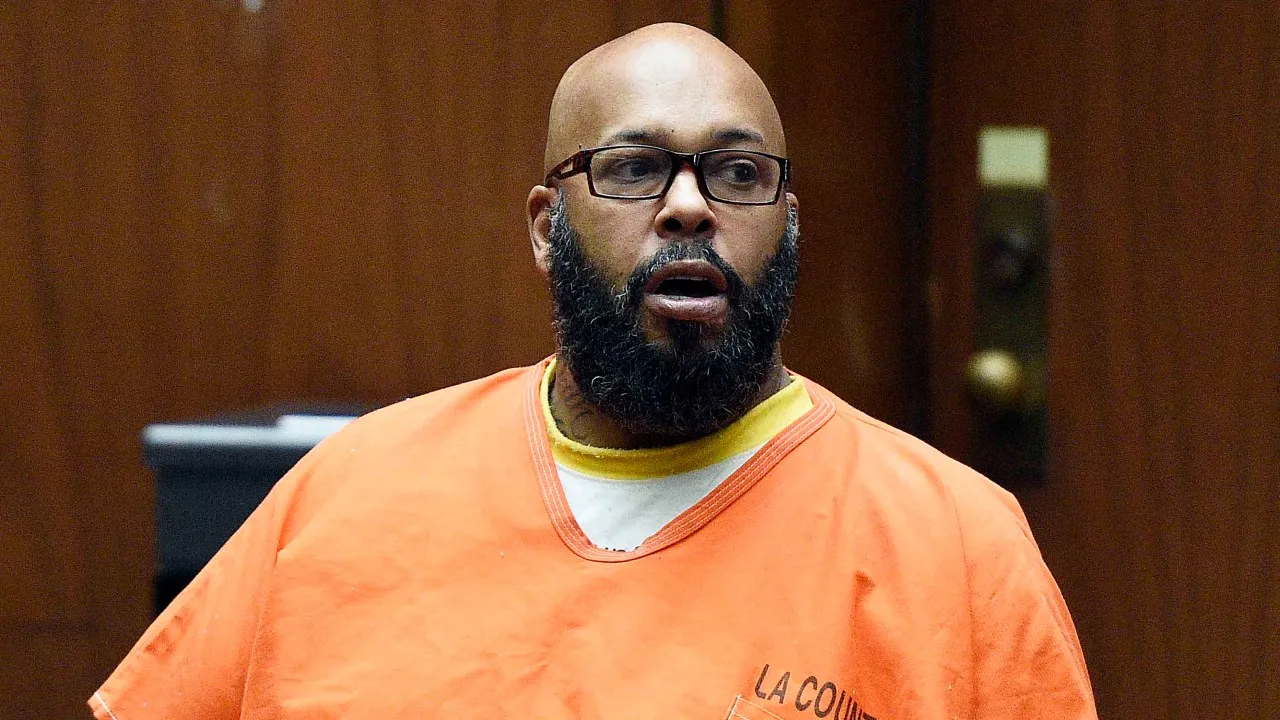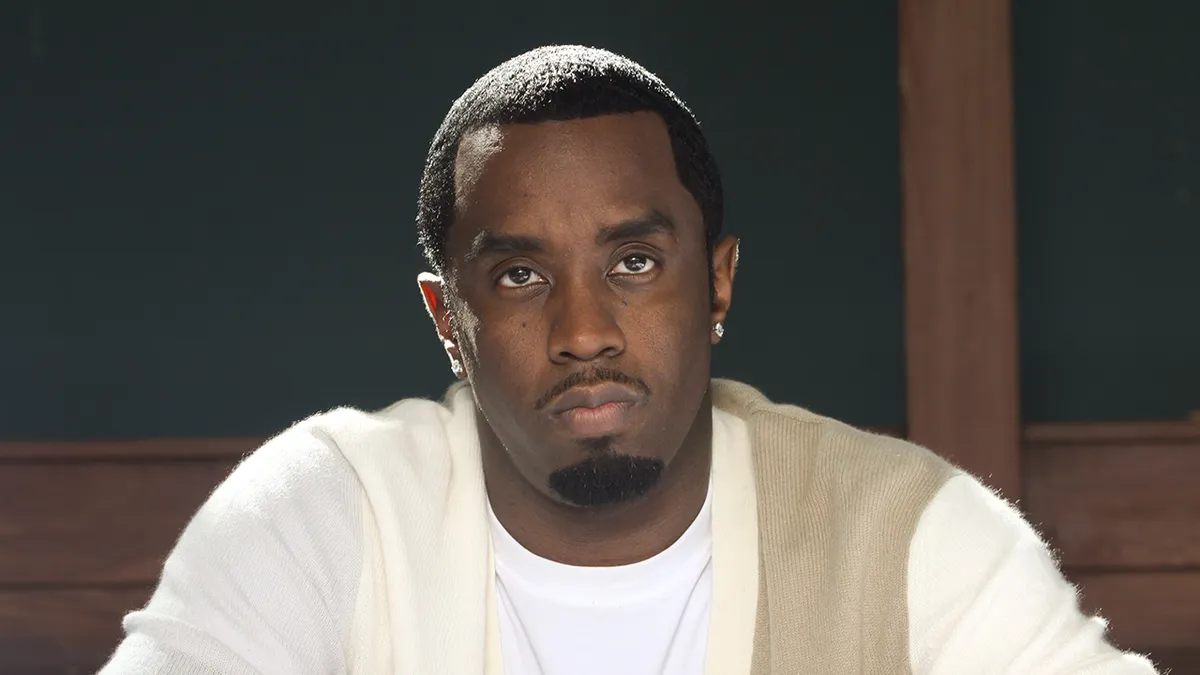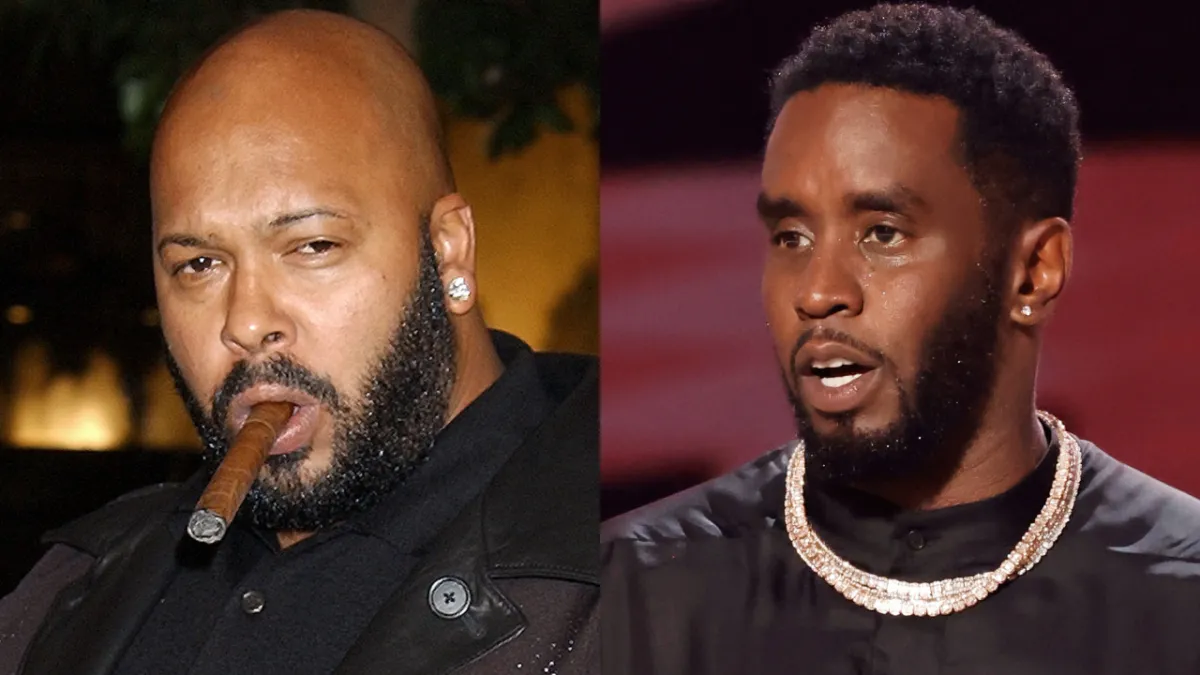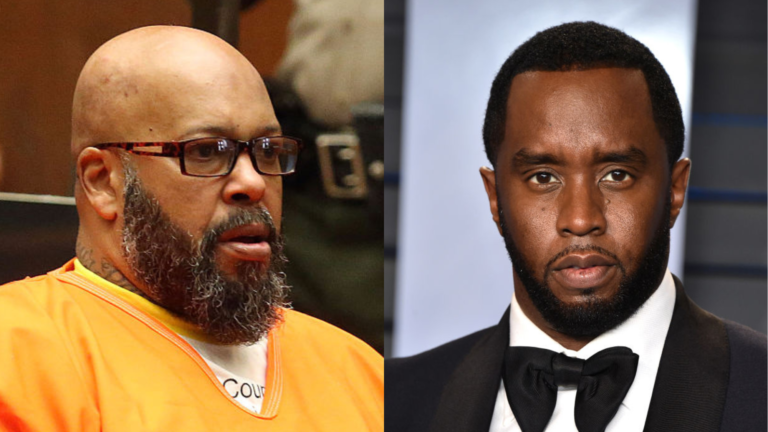When it comes to iconic rivalries in the music world, few can compare to the feud between Sean “Diddy” Combs and Suge Knight. This clash of titans, steeped in ambition, betrayal, and violence, defined a turbulent era in hip-hop history. But if recent allegations are true, this beef almost culminated in an armed confrontation that could have rewritten the industry’s history books.

Guns, Drugs, and an Alleged Showdown at Mel’s Diner
According to recent court filings by Diddy’s former girlfriend, Cassie Ventura, the tension between Diddy and Suge Knight went far beyond verbal sparring. One chilling incident alleges that Diddy armed himself with guns, ready for a face-off with his longtime nemesis after hearing Knight was dining at a Los Angeles hotspot, Mel’s Drive-In.
The court documents paint a chaotic scene. After being informed of Knight’s location, Diddy reportedly retrieved several weapons from his safe, threw on his clothes, and stormed out. Former head of security, Roger Bonds, detailed the near-confrontation in an interview:
“Puff gathers up the things that he’s gotta gather up, and he pulls up. He comes in the black Cadillac… Puff said, ‘Let’s end this s*** right now.’”
Thankfully, Diddy’s security team convinced him to turn back before things escalated into violence. However, this incident serves as a stark reminder of how volatile their feud had become.
The Origins of a Hip-Hop Feud: From the Source Awards to a War of Words
To understand the depths of their animosity, one must look back to the mid-90s—a golden yet chaotic era in hip-hop. Diddy was rapidly rising as the head of Bad Boy Records, propelling artists like The Notorious B.I.G. and Faith Evans to stardom. However, Suge Knight, the fearsome leader of Death Row Records, wasn’t impressed by Diddy’s meteoric rise.
The feud came to a head at the 1995 Source Awards, where Knight threw a now-infamous jab:
“If you don’t want the owner of your label on your album or in your video or on your tour, come sign with Death Row.”
The diss wasn’t just professional; it was deeply personal. Diddy later admitted how blindsided he felt:

“I couldn’t believe what he said. I thought we was boys.”
From that moment, the rivalry turned from business to bitter enmity, casting a long shadow over the East Coast-West Coast divide in hip-hop.
A Legacy of Violence and Legal Woes
While their feud played out in public, it often crossed into dangerous territory. Knight’s reputation for intimidation and violence was legendary, while Diddy, often seen as the smoother operator, wasn’t above taking drastic measures when provoked.
In the years since, their lives have taken dramatically different turns:
- Suge Knight: Currently serving a 28-year sentence for a fatal hit-and-run incident.
- Sean “Diddy” Combs: Facing serious allegations, including sexual assault and trafficking, with legal battles that could change his legacy forever.
Interestingly, Knight has weighed in on Diddy’s legal troubles, offering a grim perspective:
“Prison and jail is a negative environment,” Knight said in a recent interview, hinting that fame and power won’t protect Diddy behind bars.
The Cultural Impact of Their Rivalry
Beyond the headlines and scandals, the feud between Diddy and Suge Knight symbolized a broader cultural clash within hip-hop. It was East Coast versus West Coast, corporate polish versus street grit, and ambition versus intimidation. The tension between their labels not only fueled record sales but also left a trail of broken lives and unresolved questions.

While both men remain polarizing figures, their contributions to the industry are undeniable. Yet, their rivalry serves as a cautionary tale of what happens when ambition turns to obsession.
Even decades later, the Diddy-Knight feud continues to capture the public’s imagination. With shocking new revelations, legal troubles, and personal struggles coming to light, their intertwined legacies remain a complex tapestry of triumph and tragedy.
